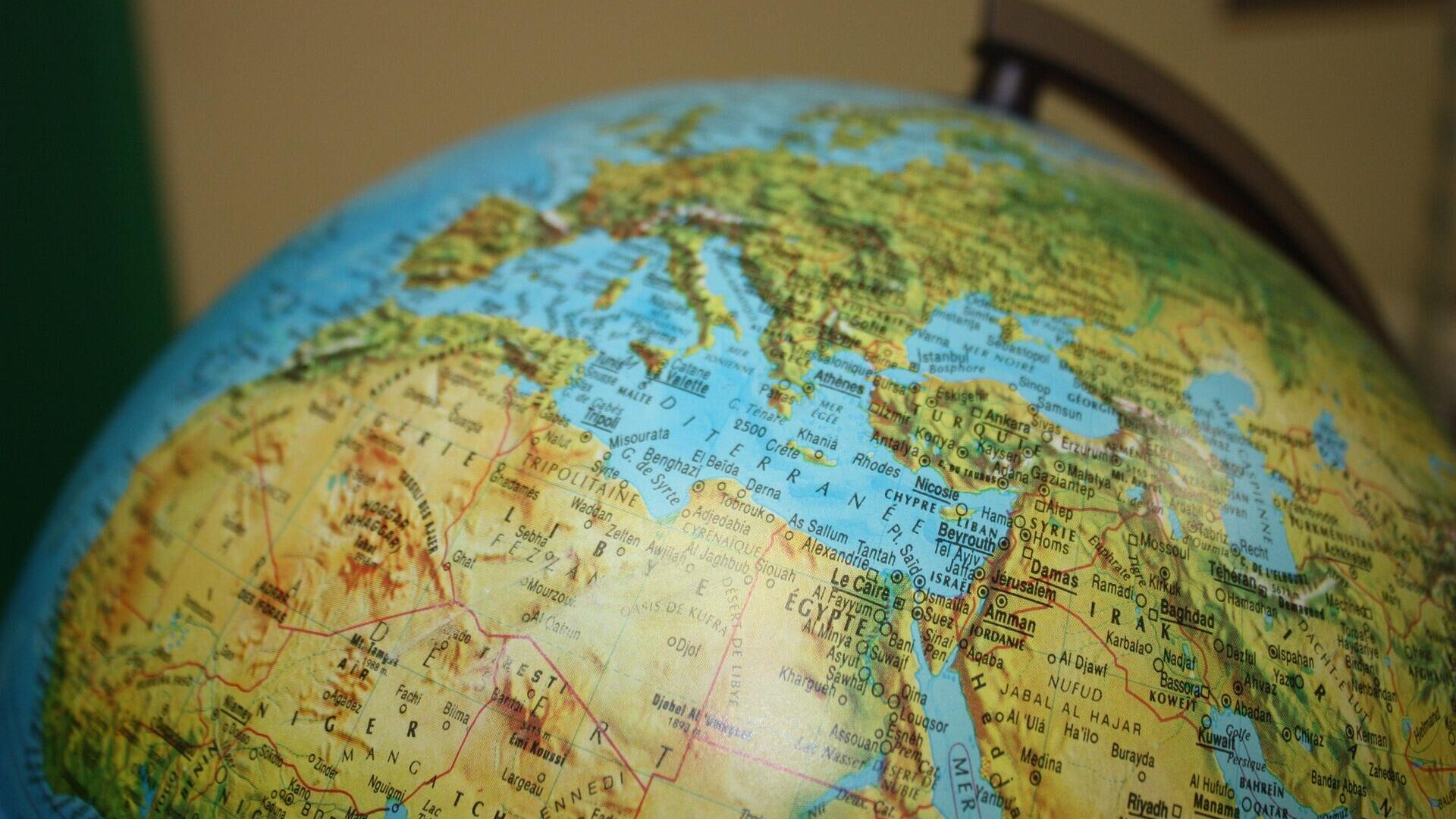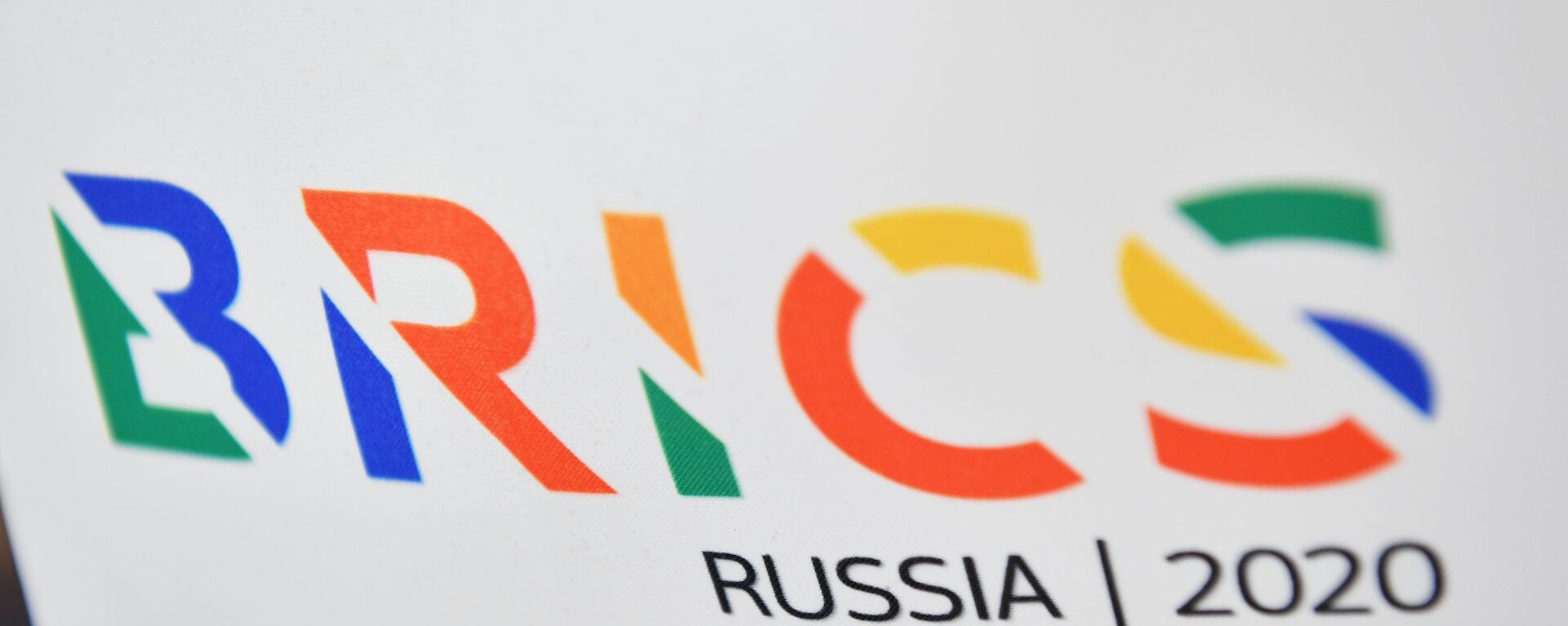https://en.sputniknews.africa/20230527/africa-a-tasty-morsel-new-colonialism-is-developing-director-of-institute-of-africa-says-1059500183.html
Africa a 'Tasty Morsel': New Colonialism is Developing, Director of Institute of Africa Says
Africa a 'Tasty Morsel': New Colonialism is Developing, Director of Institute of Africa Says
Sputnik Africa
Africa is a subject of interest for colonial countries because it has huge reserves of natural resources, Director of the Institute of Africa of the Russian Academy of Sciences Irina Abramova told Sputnik.
2023-05-27T08:30+0200
2023-05-27T08:30+0200
2023-05-27T08:41+0200
opinion
russia
russia-africa cooperation
united states (us)
neocolonialism
europe
china
cooperation
brics
the shanghai cooperation organization (sco)
https://cdn1.img.sputniknews.africa/img/07e6/0c/0d/1057260279_0:100:1921:1180_1920x0_80_0_0_f774b8d26a675774a314095852035038.jpg
Africa is a subject of interest for countries pursuing neo-colonial policies because it has huge reserves of natural resources, Irina Abramova, Director of the Institute of Africa of the Russian Academy of Sciences and member of the Presidium of the Russian Academy of Sciences told Sputnik. According to Abramova, an absolutely new type of colonialism is being formed today, perhaps even something newer than neocolonialism, since it uses other tools in relation to colonies.In this new colonial era, Africa and Russia are standing side by side, Abramova stressed. The countries of the new colonialism perceive Russia and Africa exclusively as regions which provide resources that are needed by these countries. She stressed that Africa, due to the tools of neocolonialism, is very dependent on both Western countries and the United States. According to the expert, Africa wants to develop, including in energy issues, but green energy projects, which are so promoted by the West, carry big problems for the region. Moreover, behind them lies "another redistribution of wealth in favor of the West." As the Director of the Institute of Africa of the Russian Academy of Sciences noted, in today's unstable times, BRICS as a platform is attractive for developing countries, including African ones.She stressed that it is in BRICS that Africa sees an alternative to the neocolonial Western world, since economic influence is gradually shifting to the east today.She also stressed that BRICS is an important platform for African countries, because South Africa has been a member of it since 2011.Moreover, African countries see BRICS as a solution to many issues, including in the context of integration with other countries.She also stressed that multilateral cooperation based on BRICS will allow African countries to develop various sectors of the economy even despite pressure from the West.
https://en.sputniknews.africa/20230526/western-countries-want-to-keep-africa-enslaved-ugandan-envoy-says-1059499845.html
https://en.sputniknews.africa/20230524/south-african-sherpa-reveals-why-global-south-is-knocking-on-brics-door-1059441775.html
russia
united states (us)
europe
china
Sputnik Africa
feedback@sputniknews.com
+74956456601
MIA „Rossiya Segodnya“
2023
News
en_EN
Sputnik Africa
feedback@sputniknews.com
+74956456601
MIA „Rossiya Segodnya“
Sputnik Africa
feedback@sputniknews.com
+74956456601
MIA „Rossiya Segodnya“
new colonialism, is developing, african continent, subject of interest, colonial countries, natural resources, new colonialism, you know, model of colonialism, western countries, united states, american program, european countries, according to the expert, energy issues, green energy projects, brics countries, western world, developed countries, economic power, golden billion, south africa
new colonialism, is developing, african continent, subject of interest, colonial countries, natural resources, new colonialism, you know, model of colonialism, western countries, united states, american program, european countries, according to the expert, energy issues, green energy projects, brics countries, western world, developed countries, economic power, golden billion, south africa
Africa a 'Tasty Morsel': New Colonialism is Developing, Director of Institute of Africa Says
08:30 27.05.2023 (Updated: 08:41 27.05.2023) Earlier this month, during the 11th St Petersburg International Legal Forum, Russia's Minister of Foreign Affairs Sergey Lavrov criticized the US and its Western partners for establishing a 'neo-colonial orientation' unipolar model of the world order.
Africa is a subject of interest for countries pursuing neo-colonial policies because it has huge reserves of natural resources, Irina Abramova, Director of the Institute of Africa of the Russian Academy of Sciences and member of the Presidium of the Russian Academy of Sciences told Sputnik.
"The richest in natural resources, in nature, in animal species, there are 10,000 different peoples and nationalities in Africa. It is such a tasty morsel," she stated.
According to Abramova, an absolutely new type of colonialism is being formed today, perhaps even something newer than neocolonialism, since it uses other tools in relation to colonies.
"Now the new colonialism, you know, it takes on some amazing forms in general. We are no longer talking about the collective West," the expert stated. "We are talking about one country that dictates conditions, including to its former allies, the same Europeans, who also have to line up and salute one country. Europe is losing its subjectivity. And this model of colonialism, it extends to the whole world. There is one country that will manage everything. And there are all other countries that have a certain role to play."
In this new colonial era, Africa and Russia
are standing side by side, Abramova stressed. The countries of the new colonialism perceive Russia and Africa exclusively as regions which provide resources that are needed by these countries.
"Someone has a more worthy role, someone less worthy. So, we are with Africa, we are in the same group. We are resource providers, that's it. We still have, in general, a strong technological lag, conservation, let's say. We have 30% of the world's resources, Africa has 30%. 'Well, come on, do it. [...] You [Russia, Africa] must provide the conditions for our [developed countries] comfortable existence.' This is the slogan of the new colonialism, and it is related to one country. The concentration is very high and the imbalance is very large," Abramova stressed.
She
stressed that Africa, due to the tools of neocolonialism, is very dependent on both Western countries and the United States.
"There are more than 60 US military presence points in Africa. One base is in Djibouti, but there are points there [...]. What are they doing there at these points? According to open data alone, there are 49 US biolabs in Africa. So, multiply by at least 10," Abramova stressed.
According to the expert, Africa wants to develop, including in energy issues, but green energy projects, which are so promoted by the West, carry big problems for the region. Moreover, behind them lies "another redistribution of wealth in favor of the West."
"Experts have calculated that, firstly, a) the transition to green energy costs crazy money, b) it is a deception that it is cleaner," she noted. "Now they don't know what to do with these batteries. They don't decompose, where should I bury them? The extraction of these resources, which are necessary for a green transition, is 10 times more environmentally efficient than the use of nuclear energy, gas, etc. 80% of the projects that the West implements in Africa are green energy projects."
As the Director of the Institute of Africa of the Russian Academy of Sciences noted, in today's unstable times, BRICS as a platform
is attractive for developing countries, including African ones.
The experience of both BRICS and other associations, such as the SCO, which is really and actively operating, is quite attractive to other states that, in the conditions of modern turbulence, are looking for some opportunities to join certain unions in order to obtain certain economic and political benefits for themselves.
She stressed that it is in BRICS that Africa sees an alternative to the neocolonial Western world, since economic influence is gradually shifting to the east today.
"And this is due to the great confrontation between one big, golden billion [developed countries] and all other humanity. [...] When the economic power moves from the golden billion to the south and east, but the instrumental part, the institutional, military and technological part is still in the hands of this golden billion, we need to look for ways, [...] no one has canceled the dollar yet, despite the fact that it has been greatly shaken, the vast majority of global trade transactions are still conducted through the dollar, countries are looking for some alternative, and they are considering various opportunities, primarily BRICS," the expert outlined.
She also stressed that BRICS is an important platform for African countries, because South Africa has been a member of it since 2011.
Moreover, African countries
see BRICS as a solution to many issues, including in the context of integration with other countries.
"And I think that Africans really see this as some kind of alternative to solve their problems. If the projects that are currently being implemented within the framework of BRICS are really launched, I think that this is a very good opportunity for Africans to solve their problems together with other countries within the framework of the integration association," she noted.
She also stressed that multilateral cooperation based on BRICS will allow African countries to develop various sectors of the economy even despite pressure from the West.
"First of all, of course, it concerns trade, it also concerns financial support for economic development, because in conditions when the West dictates, constantly announces sanctions, there are very big difficulties for foreign economic relations and African countries that are interested in maintaining economic ties, of course, with China," she emphasized. And with the Russian Federation, India, and Brazil, of course, they are interested in BRICS offering some new mechanisms to get out of this situation, primarily in the anti-sanctions fight."



